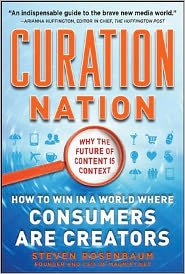What do you think?
Rate this book


Hardcover
First published January 28, 2011
And now thanks to the magic elixir of bandwidth and hardware, we've all got a television broadcast studio in our pocket, a printing press on our desktop, and a radio station in our iPod. Mass media just went kaboom.At one point he talks about buggy whips. Of course.